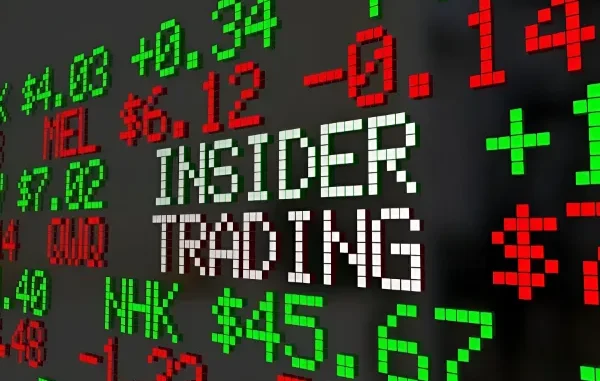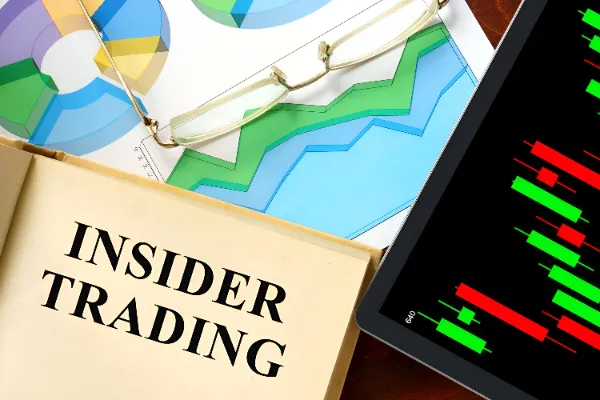
Insider trading is a hot-button issue in the financial world. While some see it as a savvy business move, others view it as a breach of trust. Understanding the laws and ethics surrounding insider trading is crucial for investors and companies alike. Let’s dive into the legal frameworks, ethical considerations, and consequences of this controversial practice. If you wish to learn about investing with education companies, you want to explore the site of a reliable platform online.
Legal Framework Governing Insider Trading
Key Legislation: Major Laws and Regulations
Insider trading laws aim to keep the stock market fair. The Securities Exchange Act of 1934 is a cornerstone. It set the stage by outlawing deceptive practices. The Insider Trading Sanctions Act of 1984 added more teeth. It increased penalties for those caught. In 1988, the Insider Trading and Securities Fraud Enforcement Act further toughened penalties. These laws have evolved to close loopholes. The Dodd-Frank Act of 2010 made it even harder to escape scrutiny. These laws together create a web that catches illicit traders.
Regulatory Bodies: Roles of the SEC and Other Authorities
The SEC is the main watchdog. It monitors trading and investigates suspicious activity. The SEC works with the FBI and the Department of Justice. These bodies bring criminal charges when needed. FINRA also plays a role. It oversees broker-dealers and ensures they follow rules. Together, these agencies create a strong enforcement network. They make sure the market stays fair and transparent.
Ethical Considerations and Public Perception
Moral Implications: The Ethical Debate Surrounding Insider Trading
Is insider trading always wrong? This question sparks debate. Some argue it’s simply unfair. Insiders have an advantage over regular investors. Others say it’s part of business. They argue information should be free. But, most agree it creates an uneven playing field. It’s seen as a betrayal of trust. Companies expect employees to act ethically. When they don’t, it tarnishes their reputations.
Public Trust: Impact on Investor Confidence and Market Integrity
Trust is the foundation of markets. When insider trading happens, it shakes that trust. Investors may feel the game is rigged. They might pull their money out, fearing unfair practices. This can lead to market instability. Trustworthy markets attract more investors. They foster growth and innovation. When trust is broken, everyone suffers. Authorities must act swiftly. Restoring trust takes time, but it’s essential for a healthy market.
Legal vs. Illegal Insider Trading

Gray Areas: Distinguishing Legal from Illegal Practices
Not all insider trading is illegal. It’s legal when insiders follow rules. They must report their trades to the SEC. Illegal trading happens when they use non-public information. The line can be blurry. For example, tips from a friend who works at a company can be illegal. The SEC looks at intent and timing. They assess whether the trader had unfair access to information.
Case Studies: Landmark Legal Cases and Their Implications
Several cases highlight the risks of insider trading. Martha Stewart’s case is well-known. She sold shares based on non-public information. Raj Rajaratnam’s case was another big one. He ran a hedge fund and used insider tips. Both faced hefty fines and prison time. These cases show that no one is above the law. They also serve as warnings. The consequences are severe for those who break the rules.
Enforcement and Penalties
Detection Methods: How Authorities Uncover Insider Trading
Authorities have various tools to catch insider traders. They monitor trading patterns for suspicious activity. They use software to detect unusual trades. Whistleblowers also play a key role. They can report suspicious behavior anonymously. The SEC offers rewards for tips that lead to convictions. Cooperation between agencies enhances detection. They share information and resources to track down offenders.
Legal Consequences: Penalties and Legal Ramifications for Violators
Penalties for insider trading are severe. They include hefty fines and prison sentences. For instance, fines can reach millions of dollars. Prison terms can be up to 20 years. Violators also face civil charges. They may have to pay back profits made from illegal trades. Their reputations suffer greatly. This can ruin careers and personal lives. Companies involved can face penalties too. They may have to implement stricter compliance measures.
Conclusion
Insider trading remains a contentious topic with serious legal and ethical implications. By grasping the laws, ethical debates, and enforcement methods, we can better navigate this complex landscape. Always stay informed and consult financial experts to ensure fair play and maintain market integrity. Remember, trust is the cornerstone of a healthy market.






Leave a Reply